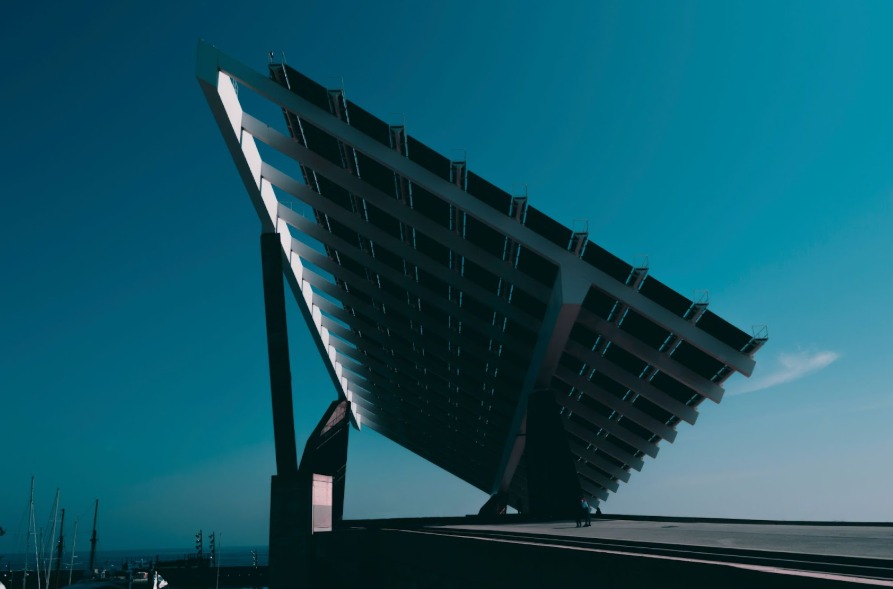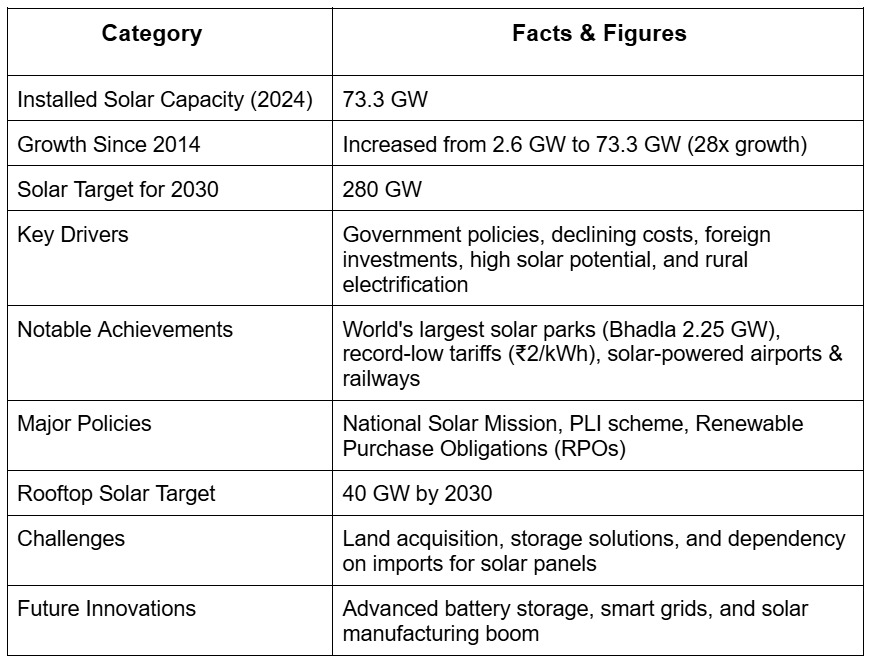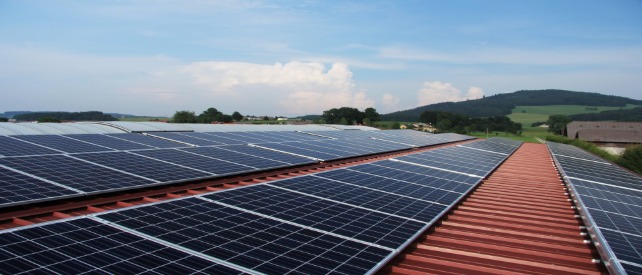
Are you ready to embrace the sunshine and transform your homes and businesses?
As we know, India is taking steps towards solar power with great confidence, and government policies have also made it quite easy. It presents a valuable opportunity for large industries, enterprises, and homeowners. Technological advancements in solar energy are attracting the market and are becoming the trend. However, by using solar energy, you cut your electric bill. This is a very good opportunity for the industries and enterprises. There is a lot of awareness about solar energy in the Indian market, which aims to protect the environment and ensure a future filled with clean energy. In this blog, I am talking about some trends regarding solar energy and making it clear why it’s time to transition to renewable energy. Divvy Solar has emerged as an influential partner in many parts, like Haryana, Punjab, and Chandigarh, and now it is establishing its foothold in Gurgaon.
The Current Solar Landscape in India:
India is a developing country; hence, it is always looking for opportunities to develop our nation so that we can keep pace with the world. As we know, the world is moving forward to solar energy because of environmental concerns and a cost-effective energy solution. Over the past decade, the Indian market has undergone a transformative shift due to technological advancement, and the government’s incentives, policy support, and schemes have scaled up solar installation.

A Promising Future: Unprecedented Growth in Installed Capacity
India will become the global leader in the field of solar energy in 2025. Our country is experiencing a rapid increase in renewable energy, and as of January, has reached approximately 271.62 GW project capacity, and solar power installation capacity has reached, contributing approximately 47%.
Our Indian government is taking an ambitious step towards renewable energy to accelerate energy adaptation through initiatives like the National Solar Mission, the Production-Linked Incentive (PLI) scheme, and solar rooftop programs. India has been positioned as a global leader in solar energy with large-scale solar parks and decentralised rooftop systems.
Government Initiatives: Powering Progress
The Indian government has set an ambitious target of achieving 500 GW of non-fossil fuel-based energy capacity by 2030, with a focus on solar power transition, and aims to accelerate solar energy adoption across the country.
Solar park scheme driving the growth seeks to develop 50 solar parks with a cumulative capacity of approximately 38 GW by 2026. These solar parks provide pre-identified land, grid connectivity, and essential infrastructure. By fostering large-scale solar installations, the scheme not only enhances India’s renewable energy capacity but also contributes to job creation.
The government has also launched the Kisan Urja Suraksha evam Utthan Mahabhiyan (PM-KUSUM) to promote decentralised solar solutions in rural areas and various solar rooftop subsidy programs to encourage adoption among residential and commercial consumers. These strategic government initiatives are helping the nation meet its renewable energy goals.
- Subsidies from the Ministry of New and Renewable Energy (MNRE) – Get up to a 40% subsidy on residential solar installations.
- State-Specific Incentives – States like Gujarat, Maharashtra, and Rajasthan offer additional benefits, including net metering and property tax exemptions.
- Net Metering Policies – Sell excess solar power back to the grid and watch your electricity bills drop.
- GST & Loan Benefits – Enjoy reduced GST rates (5%) on solar equipment and easy financing options for solar adoption.

Switching to solar is not just an environmentally conscious decision—it’s also a financially smart one.
Trends Shaping Solar Energy in 2025

1. Technological Innovations: Efficiency Meets Affordability
-India’s energy demand has increased. There are many reasons for this increase, but in my opinion, the population plays an important role and has given rise to energy consumption. In 2025, exponential advancements in solar panels and their efficiency will be more crucial than ever. Silicon-based panels are achieving remarkable efficiency levels, averaging around 25%, and perovskite-silicon tandem solar cells are pushing past 30%, which means you can produce more energy with fewer panels.
As we know, the world is evolving rapidly and always has a craving to achieve something because humans are creative and curious animals, and that is the result of innovation. The trend is moving towards solar energy, and with rapid advancement in the energy storage solution, enhancing overall energy security by storing excess solar energy for later use, such as on cloudy days or at night. Virtual power plants (VPPs) allow users to sell stored energy to create an extra source of income.
2. Decentralised Solar Solutions: Empowering Consumers
The Indian government has also focused on solar energy with an ambitious vision by keeping in mind the increasing environmental concerns. The rise of decentralised solar solutions draws attention toward clean energy programs like the PM Surya Ghar: Muft Bijli Yojana, which is making it easier for homeowners to install rooftop solar systems. This type of government program empowers rural areas with financial incentives, subsidies, streamlined installation processes, and electricity options.
India has a financial gap between urban and rural areas. We are all aware of this, but the energy gap no one talks about, right?
Community solar programs are playing a significant role in bridging the energy gap in rural and underserved areas. Through these advancements, decentralised solar energy is not only enhancing energy security but also promoting economic empowerment and environmental sustainability.
3. Smart Technologies: The Future of Energy Management

The world looks unimaginable with the technological revolution, and the integration of Artificial Intelligence and the Internet of Things has impacted every aspect of the global market. India witnessed a significant change in the solar market in various parts of the country by revolutionising the way homes manage energy consumption, making solar power smarter, more efficient, and easier to control. AI-driven solar solutions can predict maintenance needs, and these systems can also communicate with smart appliances, automatically adjusting their operation based on energy availability to further enhance efficiency.
The integration of Artificial Intelligence (AI) and the Internet of Things (IoT) in solar systems is revolutionising the way homes manage energy consumption, making solar power smarter, more efficient, and easier to control. Additionally, AI-driven solar solutions can predict maintenance needs by detecting potential issues before they escalate. These systems can also communicate with smart appliances, automatically adjusting their operation based on energy availability to further enhance efficiency.
These technological advancements help analyse energy consumption, weather patterns, and solar generation data. Through mobile apps, users can control and monitor their energy independence while contributing to a more sustainable future.
These advanced systems use artificial intelligence to optimise energy usage by analysing consumption patterns, weather forecasts, and solar generation data, monitoring and control through intuitive mobile apps and empowering users to take full control of their energy independence while contributing to a more sustainable future.
4. More Aesthetic & Flexible Solar Solutions
When a user is trying to switch to solar energy, the major concern is the impact of bulky solar panels on their property, so innovations lead to a perfect blend of modern architecture and aesthetics with stylish solar panels, which help to make the switch to clean energy without compromising on design.
Innovative Solar Design Options
- Solar Shingles: Solar shingles integrate seamlessly into a home’s roof, serving as both roofing material and energy generators. These low-profile, durable, and efficient shingles integrate directly into the structure of the home, eliminating the need for visible mounting systems, and they provide a practical solution for new constructions or roof replacements.
- Transparent Solar Windows: The latest innovation in photovoltaic technology has led to the development of transparent solar glass, which converts sunlight into electricity while allowing natural light, which can be used in windows, skylights, and facades. These windows harness UV and IR light, invisible to humans, to generate power.
- Black-on-Black Solar Panels: Black-on-black solar panels offer a sleek, modern aesthetic with black frames and solar cells. These panels maintain high efficiency, typically using monocrystalline cells. They provide a durable and reliable solar solution with comprehensive warranties.
5. Customised Solar Solutions for Residential & Commercial Needs

Increasing environmental issues and energy bills are becoming everyone’s problem, so we recognise that tailored solutions are crucial for each homeowner and business because everyone has distinct energy needs, whether you are looking for a residential rooftop system, a commercial solar carport, or an industrial-scale solar farm. Divvy Solar provides customised EPC solutions according to your requirements.
Residential Solar Solutions
Solar demands are rising continuously because of the cost of electricity bills that are higher than usual, and we all know it is the result of inflation. Our residential solar systems are designed to maximise energy efficiency, lower electricity costs, and provide long-term sustainability.
- Rooftop Solar Systems
- Smart Energy Management
- Net Metering Benefits
- Customized Designs
- Sustainable & Cost-Effective
- Expert Installation & Support
Commercial Solar Solutions
At Divvy Solar, we design and implement customised solar solutions for large-scale commercial clients.
- Solar Carports
- Rooftop Solar Systems
- Ground-Mounted Solar Farms
- Power Purchase Agreements (PPAs
- Energy Cost Savings
- Sustainability & Compliance
Industrial-Scale Solar Farms
For large industrial operations, customised solar solutions can be designed and scaled to meet significant energy demands while improving cost efficiency and sustainability.
Large-Scale Solar Farms
Cost Savings
Efficient Land Use
Power Purchase Agreements (PPAs)
Consistent Power Supply
Grid Stabilization
End-to-End Support
6. Solar for Large-Scale Commercial & Industrial Projects
Large-scale solar installations offer significant cost savings by reducing reliance on traditional energy sources for large businesses and industrial facilities. Solar energy is becoming one of the most cost-effective strategies for reducing operational expenses and achieving sustainability goals.
Diverse Solar Installation Options
Rooftop Solar Systems: Large commercial and industrial buildings often have expansive, unused roof space, making them ideal for high-capacity solar panel installations that directly offset energy consumption.
Solar Carports: These dual-purpose structures generate clean energy while providing shaded parking for employees and fleet vehicles. Businesses can also integrate EV charging stations to support sustainability initiatives.
Ground-Mounted Solar Farms: For companies with available land, ground-mounted solar systems offer high-efficiency power generation, enabling large-scale energy production beyond rooftop capacity.
Power Purchase Agreements (PPAs) for Cost Stability

Power Purchase Agreements (PPAs) are a strategic tool for large enterprises to stabilise their energy costs while transitioning to solar power.
No Upfront Costs: PPAs are the most significant tool as they require no initial capital investment.
Fixed Energy Pricing: PPAs enable businesses to purchase electricity at a fixed rate, which is lower than traditional utility rates.
Maintenance and Operational Responsibilities: The solar developer is responsible for maintaining and operating the solar system by reducing the financial risk.
Cost Savings and Energy Efficiency: This enhances financial stability and supports sustainability goals by reducing reliance on fossil fuels.
Operational Benefits & Sustainability Impact
Large-scale solar adoption helps businesses meet corporate sustainability goals, reduce carbon footprints, and comply with government energy regulations. Solar adaptation improved your ESG ratings, and this helps meet corporate sustainability, LEED certification and compliance support building standards with regulatory compliance. This global initiative contributes to net-zero goals and enhances reputation. Establishing a business with solar energy enhances your brand reputation by creating a sustainable environment while lowering carbon emissions.
7. The Rise of Net-Zero Homes & Businesses
What if your property could generate as much energy as it consumes?
Just think—generating as much energy as it consumes with cutting-edge solar technology, energy-efficient design, high-performance appliances, and advanced storage systems is making net-zero homes and businesses a reality.
Companies adopting solar energy, and for the Indian market, solar energy has become a key strategy for ensuring long-term environmental responsibility, with the target of net zero emissions by 2070.
Solar energy is vital for Indian businesses, and a commitment to sustainability enhances brand reputation. Businesses can benefit from solar subsidies, tax benefits, and net metering to reduce installation costs by depreciation of up to 40%.
By aligning with a green energy future and reducing electricity costs, Indian businesses can become less dependent on traditional energy sources. The growing focus on Environmental, Social, and Governance (ESG) factors attracts investors while prioritising solar adoption along with renewable Purchase Obligations (RPOs) and regulatory compliance positions India as a global leader in renewable energy.
Why Choose Divvy Solar for Large-Scale Solar Projects?

Over the last few years, Divya Solar has established itself as one of the best EPC solutions providers in Haryana and Punjab. We have successfully installed more than 16000 projects, which has made us trusted in this field.
- Our expertise in large-scale projects specialises in high-capacity solar farms, ground-mounted installations, and industrial solutions.
- We provide end-to-end project management from site assessment to installation by EPC solutions with long-term maintenance.
Proven record with successful installations across Haryana, Chandigarh, and Punjab, and now expanding into Gurgaon.
Tailored Power Purchase Agreements (PPAs) enjoy predictable energy pricing and zero upfront costs with flexible financing options.
Proven Track Record with successful installations across Haryana, Chandigarh, and Punjab, and now expanding into Gurgaon. Divvy Solar has established itself as a trusted leader in large-scale commercial and industrial solar projects.
Future Outlook: The Road Ahead for Solar Energy in India
India accelerates toward a clean energy future with advancements in technology, supportive government policies, and increasing consumer adoption. The rapid integration of high-efficiency solar panels, energy storage solutions, AI-driven energy management, and decentralised solar programs is making renewable energy more accessible and cost-effective than ever before.
At Divvy Solar, we are committed to helping homeowners, businesses, and industries unlock the full potential of solar energy through customised, high-efficiency solar solutions, from residential rooftop systems and commercial solar carports to large-scale industrial solar farms.
We provide end-to-end EPC solutions that maximise energy savings with an ambitious target of 500 GW of non-fossil fuel-based energy capacity by 2030. India is well on its way to becoming a global leader in solar power. Divvy Solar is here to guide you in making a seamless transition to clean energy. Investing in solar today not only ensures financial savings and energy independence but also contributes to a more sustainable, resilient, and carbon-free future.
Divvy Solar Solutions is your trusted partner in the solar journey—now is the time to take action!
